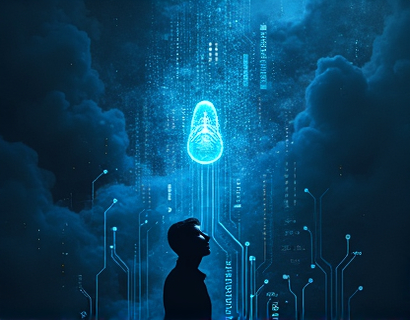AI-Powered Personalized Learning: Transforming Education for Students and Adults
The educational landscape is undergoing a significant transformation with the integration of AI-powered personalized learning platforms. These innovative solutions are redefining how students and adults approach learning, offering a tailored experience that adapts to individual needs and learning styles. This article delves into the future of education, exploring how AI-driven platforms are making learning more accessible, engaging, and effective for all ages.
The Need for Personalized Learning
Traditional education systems often struggle to meet the diverse needs of every student. Classrooms are typically designed to accommodate a average learning pace and style, which can leave many students feeling left behind or unchallenged. For adults pursuing further education or professional development, the challenges are equally pronounced. With varying schedules, prior knowledge, and learning preferences, a one-size-fits-all approach is rarely effective. AI-powered personalized learning addresses these issues by providing a flexible and adaptive learning environment that caters to each individual's unique requirements.
How AI Personalized Learning Works
AI personalized learning platforms use advanced algorithms and machine learning techniques to create customized learning paths for each user. The process begins with an initial assessment to gauge the user's current knowledge, skills, and learning preferences. This data is then used to generate a personalized curriculum that includes interactive lessons, videos, quizzes, and other resources. As the user progresses, the AI continuously monitors performance and adjusts the content in real-time to ensure optimal learning outcomes.
Adaptive Learning Technologies
Adaptive learning technologies are at the core of AI-powered personalized education. These technologies use data analytics to identify patterns in user behavior and performance, allowing the platform to make informed decisions about what content to present next. For example, if a student is struggling with a particular concept, the AI can provide additional practice exercises or alternative explanations to reinforce understanding. Conversely, if a user demonstrates mastery, the platform can introduce more advanced topics to keep them engaged and challenged.
Instant Feedback and Support
One of the most significant advantages of AI-powered personalized learning is the immediate feedback it provides. Unlike traditional classrooms where feedback is often delayed, AI platforms can offer instant insights into a user's performance. This real-time feedback helps students identify and correct mistakes quickly, reinforcing correct answers and building confidence. For adults, this feature is particularly valuable as it allows for continuous improvement without the need to wait for periodic assessments or reviews.
Supportive Learning Environment
AI personalized learning platforms create a supportive environment that fosters a growth mindset. Users receive encouragement and motivation through positive reinforcement and personalized messages. The platform can also simulate a virtual tutor or mentor, providing guidance and support when needed. This combination of technology and human-like interaction helps to reduce anxiety and increase engagement, making the learning process more enjoyable and effective.
Personalized Learning Styles
Every individual has a unique learning style, whether they are visual, auditory, kinesthetic, or a combination thereof. AI-powered personalized learning platforms are designed to accommodate these differences by offering a variety of content formats. For instance, visual learners might benefit from infographics and videos, while auditory learners can access podcasts and audio lectures. Kinesthetic learners can engage with interactive simulations and hands-on activities. By presenting content in multiple formats, the AI ensures that each user can absorb and retain information in the way that works best for them.
Flexibility and Accessibility
AI personalized learning platforms are highly flexible, allowing users to learn at their own pace and on their own schedule. This flexibility is especially beneficial for adults who may have busy lives and limited time for formal education. Users can access the platform from anywhere with an internet connection, whether at home, in a coffee shop, or on the go. This accessibility ensures that learning is not confined to a traditional classroom setting, making education more inclusive and convenient.
Enhancing Engagement and Motivation
Engagement is a critical factor in successful learning, and AI personalized learning platforms excel in this area. Interactive elements such as gamification, badges, and leaderboards make the learning process more enjoyable and competitive. These features not only keep users motivated but also provide a sense of achievement as they progress through their learning journey. For students, this can translate into higher retention rates and a deeper understanding of the material. For adults, it can lead to increased job satisfaction and a sense of personal growth.
Real-World Applications
The applications of AI personalized learning extend beyond traditional academic subjects. Professional development, language learning, and skill acquisition are just a few areas where these platforms can make a significant impact. For instance, a professional looking to upskill in data analysis can receive a tailored curriculum that includes the latest tools and techniques. Language learners can practice conversational skills through interactive dialogues and receive feedback on pronunciation and grammar. The versatility of AI personalized learning makes it a valuable tool for lifelong learners across various domains.
Challenges and Considerations
While AI personalized learning offers numerous benefits, there are also challenges and considerations to address. One key issue is data privacy and security. Ensuring that user data is protected and used ethically is paramount. Educational platforms must implement robust security measures and comply with relevant regulations to build trust with users. Additionally, there is a need for continuous improvement and updates to the AI algorithms to maintain accuracy and relevance.
Teacher and Instructor Roles
The role of teachers and instructors is evolving in the age of AI personalized learning. Rather than being the primary source of knowledge, educators can shift to a more facilitative role, guiding students through their personalized learning paths and providing human insight and support. This collaboration between AI and human educators can create a more holistic and effective learning experience, combining the strengths of both approaches.
Future Prospects
The future of education with AI personalized learning is promising. As technology advances, we can expect even more sophisticated and intuitive platforms that further enhance the learning experience. Integration with other educational technologies, such as virtual reality and augmented reality, could provide immersive learning environments that simulate real-world scenarios. The potential for AI to democratize education, making high-quality learning accessible to people worldwide, is a compelling vision for the future.
Conclusion
AI-powered personalized learning is revolutionizing education for students and adults alike. By providing tailored, interactive, and adaptive learning experiences, these platforms are making education more accessible, engaging, and effective. As the technology continues to evolve, the potential to transform the educational landscape is immense. Embracing AI personalized learning can empower individuals to reach their full potential, regardless of age or background, paving the way for a more educated and capable society.










































